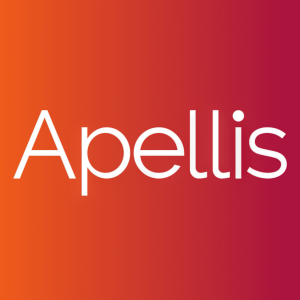Apellis Announces Negative CHMP Opinion for Pegcetacoplan for GA in the European Union and Plans to Seek Re-Examination of Application
WALTHAM, Mass., Jan. 26, 2024 (GLOBE NEWSWIRE) -- Apellis Pharmaceuticals, Inc. (Nasdaq: APLS) announced today that the Committee for Medicinal Products for Human Use (CHMP) of the European Medicines Agency has adopted a negative opinion on the marketing authorization application (MAA) of intravitreal pegcetacoplan for the treatment of geographic atrophy (GA) secondary to age-related macular degeneration (AMD). As previously announced, this opinion was expected based on a negative trend vote following an oral explanation meeting in December 2023. Apellis plans to seek immediate re-examination of its application.
“We are very disappointed in this outcome on behalf of the millions of Europeans with GA who currently have no treatment options for this irreversible form of blindness,” said Jeffrey Eisele, Ph.D., chief development officer, Apellis. “We plan to promptly initiate the re-examination of our application and address CHMP questions, with the goal of bringing this first-ever potential treatment to the GA community in Europe.”
The MAA is based on results from the Phase 3 OAKS and DERBY studies at 24 months, which were published in The Lancet. Treatment with both every-other-month and monthly pegcetacoplan reduced GA lesion growth with increasing treatment effects over time and showed a well-demonstrated safety profile. Additionally, pegcetacoplan preserved visual function longer in multiple post hoc Phase 3 analyses that have been presented at medical congresses.
More than 2.5 million people in Europe are living with GA,1 a progressive and irreversible form of vision loss that severely impairs independence and quality of life.
About the Phase 3 OAKS and DERBY Studies
OAKS (n=637) and DERBY (n=621) are Phase 3, multicenter, randomized, double-masked, sham-controlled studies comparing the efficacy and safety of intravitreal pegcetacoplan with sham injections across a broad and heterogenous population of patients with geographic atrophy (GA) secondary to age-related macular degeneration (AMD). The studies evaluated the efficacy of monthly and every-other-month pegcetacoplan in patients with GA assessed by change in the total area of GA lesions from baseline as measured by fundus autofluorescence.
About Geographic Atrophy (GA)
Geographic atrophy (GA) is an advanced form of age-related macular degeneration and a leading cause of blindness worldwide, impacting more than one million Americans and five million people worldwide.2,3 It is a progressive and irreversible disease caused by the growth of lesions, which destroy the retinal cells responsible for vision. The vision loss caused by GA severely impairs independence and quality of life by making it difficult to participate in daily activities. On average, it takes only 2.5 years for GA lesions to start impacting the fovea, which is responsible for central vision.4
About Pegcetacoplan for Geographic Atrophy (GA)
Pegcetacoplan is an investigational, targeted C3 therapy designed to regulate excessive activation of the complement cascade, part of the body’s immune system, which can lead to the onset and progression of many serious diseases. SYFOVRE® (pegcetacoplan injection) is approved in the United States for the treatment of GA secondary to age-related macular degeneration.
About Apellis
Apellis Pharmaceuticals, Inc. is a global biopharmaceutical company that combines courageous science and compassion to develop life-changing therapies for some of the most challenging diseases patients face. We ushered in the first new class of complement medicine in 15 years and now have two approved medicines targeting C3. These include the first-ever therapy for geographic atrophy, a leading cause of blindness around the world. We believe we have only begun to unlock the potential of targeting C3 across serious retinal, rare, and neurological diseases. For more information, please visit http://apellis.com or follow us on Twitter and LinkedIn.
Apellis Forward-Looking Statement
Statements in this press release about future expectations, plans and prospects, as well as any other statements regarding matters that are not historical facts, may constitute “forward-looking statements” within the meaning of The Private Securities Litigation Reform Act of 1995. These statements include, but are not limited to, statements regarding the Company’s plan to seek re-examination of the MAA . The words “anticipate,” “believe,” “continue,” “could,” “estimate,” “expect,” “intend,” “may,” “plan,” “potential,” “predict,” “project,” “should,” “target,” “will,” “would” and similar expressions are intended to identify forward-looking statements, although not all forward-looking statements contain these identifying words. Actual results may differ materially from those indicated by such forward-looking statements as a result of various important factors, including whether the benefit/risk profile of SYFOVRE following the reported events of retinal vasculitis will impact our commercialization efforts; whether SYFOVRE will receive approval from foreign regulatory agencies for GA when expected or at all, including the impact on the likelihood and timing of such approvals; and other factors discussed in the “Risk Factors” section of Apellis’ Annual Report on Form 10-K with the Securities and Exchange Commission on February 21, 2023 and Quarterly Report on Form 10-Q filed on November 1, 2023 and the risks described in other filings that Apellis may make with the Securities and Exchange Commission. Any forward-looking statements contained in this press release speak only as of the date hereof, and Apellis specifically disclaims any obligation to update any forward-looking statement, whether as a result of new information, future events or otherwise.
Media Contact:
Lissa Pavluk
media@apellis.com
617.977.6764
Investor Contact:
Meredith Kaya
meredith.kaya@apellis.com
617.599.8178
1Apellis data on file reflecting analysis of Colijin et al., 2016; Wong et al. 2014; Rudnicka et al., 2014; Korb et al., 2014; Piermarocchi et al., 2011; Fernandez-Arias et al., 2011; Augood et al., 2006.
2Rudnicka AR, Jarrar Z, Wormald R, et al. Age and gender variations in age-related macular degeneration prevalence in populations of European ancestry: a meta analysis. Ophthalmology 2012;119:571–580.
3Wong WL, Su X, Li X, et al. Global prevalence of age-related macular degeneration and disease burden projection for 2020 and 2040: a systematic review and meta-analysis. Lancet Glob Health 2014;2:e106–116.
4 Lindblad AS, et al, and AREDS Research Group. Arch Ophthalmol. 2009;127(9):1168-1174.







